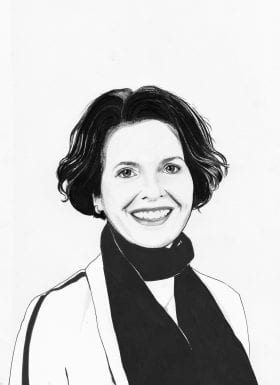-
Ammodo Science
Award for groundbreaking research2024 -
Ammodo Science Award
The Ammodo Science Award for groundbreaking research is intended to stimulate potentially groundbreaking research. Such research is usually the result of team work, and for that reason this Award is for research being carried out by a group of researchers working together, and is intended to recognise the contribution of every member of the group. The Award is presented every two years in four scientific domains: Biomedical Sciences, Humanities, Natural Sciences and Social Sciences.
-
Nomination & Selection
Each edition, the Ammodo Science Award for groundbreaking research includes a cash prize of 1,600,000 euros for each of the science domains Natural Sciences and Biomedical Sciences and a cash prize of 800,000 euros for each of the science domains Humanities and Social Sciences. The rectors of the fourteen Dutch universities affiliated to Universities of The Netherlands (UNL) may nominate a maximum of one research project per scientific domain.
-
Winners
The Ammodo Science Award for groundbreaking research focuses on potentially groundbreaking research and ensures that all researchers involved in the winning project are recognised and rewarded.
Caroline Klaver
Laureate Biomedical Sciences 2015

Caroline Klaver (1967 ) studied medicine and clinical epidemiology at Erasmus University in Rotterdam. She received her PhD with honors and undertook several years of research at two American universities: the University of Iowa and Columbia University. In 2003 she returned to Rotterdam where she is now Professor of Epidemiology and Genetics of eye diseases, Ophthalmologist and Epidemiologist at Erasmus MC. In addition to an Ammodo KNAW Award she has also been awarded a NWO Vidi grant.
WebsiteResearch focus
Caroline Klaver researches how genes and the environment contribute to the development of eye diseases.
Genetic and environmental factors in eye diseases
Klaver is multi-talented. In addition to conducting fundamental research in mice and zebrafish, she leads large scale epidemiological studies and also performs cataract operations. With such broad interests she builds bridges between fundamental and epidemiological research and clinical practice.
Based at the Erasmus MC in Rotterdam, Klaver coordinates international research into the influence of genes and the environment on four key eye abnormalities: Myopia, age-related macular degeneration, retinal dystrophy and glaucoma. She is taking the lead of one international research consortium (CREAM) and also participating in general cohort studies such as The Rotterdam Study and Generation R.
Klaver discovered that macular degeneration has a strong genetic component and identified the first of the thirty risk-increasing genes that are now recognised. But her work also proved that smoking, poor diet and lack of exercise also significantly increase a genetic predisposition.
The CREAM consortium led by Klaver deduced from data from more than 45,000 Europeans and Asians that myopia is strongly hereditary. One in three Dutch people have a predisposition; in Asia the figure is eighty percent. More than one hundred genes were found to increase the risk. But here too the environment influences the inherited risk: children who read a lot are more likely to need “negative spectacles” later in life than children who play outside a lot.
Klaver: “At Erasmus MC we have already spent more than fifteen years researching the causes of serious eye diseases. We have set up projects in which thousands of people are regularly tested and examined for any eye defects such as myopia, retinal dystrophy, glaucoma. We record changes in the eye when they are still very small, and then follow their development. A lot of eye checks need to be done, a lot of scans and analysis with expensive equipment. Thanks to the Ammodo KNAW Award, I can now digitize and use computers to analyse scans and retina photos which had to be neglected in recent years. I can also buy important equipment in the coming years and I have been able to appoint a trained ‘perimetriste’, a colleague who can carry out visual field tests on the subjects of our study. This is essential for my research into the development of retinal dystrophies; my ultimate goal is to find new avenues for the prevention and treatment of currently largely untreatable eye diseases.”